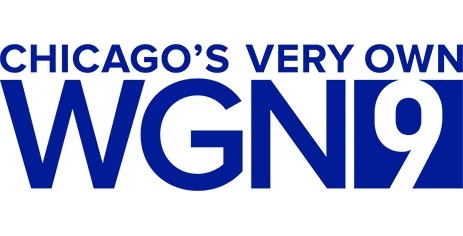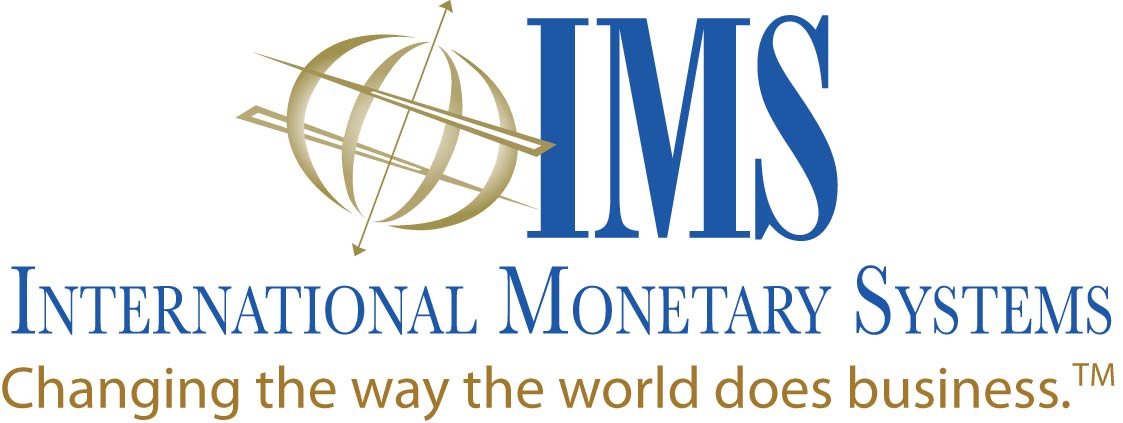IMS in the News
Changing the way the world does business, one trade at a time Thought Leadership: How She Leads - BizTimes Milwaukee

When VP Kim began at IMS Barter, she was captivated by the diverse network of businesses and the company's ability to save cash, boost sales, and improve lifestyles. She advanced from an entry-level position to a leadership role, now contributing to several industry boards, and she highlights the value of proactive engagement, creativity, and open communication in cultivating a successful work environment and positively influencing the barter industry.
IMS unveils upcoming annual Holiday Expos and Cyber Exchange Days Event - WGN Chicago

International Monetary Systems announces the start of its upcoming holiday expo season where members of the barter network across the nation shop for holiday gifts, end of year business needs, and winter travel opportunities, all utilizing their IMS trade dollars.
IMS CEO John Strabley to be Inducted to the IRTA Barter Hall of Fame - WMTV Madison

CEO John Strabley has been selected by the International Reciprocal Trade Association (IRTA) to be the 2023 inductee to the Barter Hall of Fame.
Ron Whitney, President and CEO of IRTA, confirmed, "John has helped to shape and define the modern trade and barter industry. He is exceptionally well qualified to take his place among other industry leaders who have received the coveted, Barter Hall of Fame Award."
International Monetary Systems Sponsors 29th Annual Ohio Charity Golf Classic - Yahoo! Finance

International Monetary Systems, Ltd. announces title sponsorship and organization of the annual "IMS Barter Charity Golf Classic", being held at the Kinsale Golf and Fitness Club in Powell, Ohio, benefitting Easterseals Central and Southeast Ohio and Special Olympics Ohio.
International Monetary Systems designates Ronald McDonald House Charities of Eastern Wisconsin as recipient of client donations - MarketWatch

Ronald McDonald House Charities of Eastern Wisconsin ("RMHC Eastern Wisconsin"), a non-profit organization dedicated to supporting the families of children undergoing medical treatment, has been selected as the beneficiary of a charitable initiative by International Monetary Systems (IMS), a leading national trading network with its headquarters in New Berlin.
Jimmy Crum “Labor of Love” Golf Outing - WCMH Columbus

IMS Releases Dynamic Upgrade to App - International Monetary Systems, Ltd.

International Monetary Systems, Ltd. today announced that it has released a dynamic upgrade to their app for iOS and Android devices. This complete rebuild shows IMS’s continued commitment to improving client experience as the worldwide leader in business-to-business barter services.
In addition to providing 24/7 account access and payment processing for the IMS Barter trade network, the mobile app introduces full integration with the industry-leading IMSbarter.com Marketplace, where, similar to Amazon, Walmart, eBay and other online retailers, members can not only purchase physical product using their IMS trade dollars, but can also post items for sale using their device’s camera.
“As our members increasingly rely on mobile devices for day-to-day business operations, the new IMS mobile app will provide an even easier way to manage their account, find trading opportunities, and sell their excess inventory through the power of the IMS Marketplace”, stated John Strabley, CEO of IMS.
The updated software platform will also allow IMS to more rapidly add features and enhancements, showing a long-term commitment to enhancing an already class-leading experience.
About International Monetary Systems
Founded in 1985, International Monetary Systems (IMS) serves 23,000 cardholders in 52 North American markets. Based in New Berlin, Wisconsin, IMS is one of the largest barter companies in the world. Businesses trade goods and services online using an electronic payment system with monetary units known as trade dollars. The IMS network allows companies to create cost savings and connect to new customers by incorporating barter opportunities in their business models. Further information can be obtained at the company's web site at: www.imsbarter.com.
Chosen Inc.: Selected to receive client donations from International Monetary Systems - WisBusiness

Chosen Inc. (“Chosen”), a non-profit ministry dedicated to supporting foster and adoptive parenting, has been “chosen” by the local office of a large national trading network to receive donations from its clients.
International Monetary Systems, headquartered in New Berlin, is encouraging its Wisconsin clients to support Chosen.
Back to barter: A solution for struggling area businesses - Daily Herald

Everything old is new again. As business bottomed out as a result of COVID-19, the oldest form of trade -- barter -- was booming. However, this is not your father's direct trade barter model. And that makes it even more appealing to cash-strapped businesses now.
Business to business trading has been providing an alternative method of payment that conserves cash, attracts new customers and gives businesses an advantage.
Barter transactions flourish in hard times - Accounting Today

The growth of the Internet, coupled with periodic economic downturns, has spurred continual growth in the barter industry — with tax consequences that are often overlooked by taxpayers engaging in barter transactions.
IMS Barter continues to invest in Infrastructure - International Monetary Systems, Ltd.

New Berlin, WI, May 4, 2021. International Monetary Systems, Ltd announced its second major website upgrade in the last six months to better serve its client-base. This investment in infrastructure for IMS clients shows its’ commitment to continue to be the worldwide leader in business-to-business barter services.
The website upgrade launched at the end of April 2021 focuses on the travel industry, to help bolster sales across this pandemic-devastated sector of business. Gathering inspiration from other major travel websites such as Airbnb, TripAdvisor, Kayak and others, the developers at IMS created carefully curated collections of travel properties available throughout the expansive, international IMS network.
These collections feature properties such as all-inclusive resorts, vacation homes, hunting and fishing lodges, bed & breakfasts, cabins, condominiums, hotels, plus much more, and allow IMS travelers to quickly select and book their stays in the type of accommodation they desire. In addition, the website will suggest nearby activities and restaurants offered through the IMS network to the shopper to improve their overall travel experience.
“We are looking at innovative ways to enhance the everyday client buying experience and at the same time increase the seller’s occupancy levels and market share. This website upgrade accomplishes both.” Says CEO John Strabley.
Recent website updates focused on expanding the IMS virtual marketplace platform where IMS clients list and sell products online. These upgraded features added a shopping experience more like Amazon or Etsy and the update saw an increase in web traffic for IMS by over 500%.
Founded in 1985, International Monetary Systems (IMS) serves 23,000 cardholders in 52 North American markets. Based in New Berlin, Wisconsin, IMS is the largest barter company in the world. The IMS network allows companies to create cost savings and connect to new customers by incorporating barter opportunities in their business models. Further information can be obtained at the company's website at: www.IMSBarter.com.
Company Contact:
John Strabley - CEO
(800) 559-8515
Back to Barter: A Solution for Struggling Businesses - Digital Journal

As the COVID-19 Downturn Continues, IMS Barter Is Busier than Ever
Everything old is new again. As business bottoms out as a result of COVID-19, the oldest form of trade - barter - is doing well. However, this is not your father’s direct trade barter model. And that makes it even more appealing to cash-strapped businesses now.
Old-Fashioned Bartering Is Back. Here's a Guide to Smart Swapping - Money

The pandemic has put many households’ finances in jeopardy. While tough times call for creativity, that doesn’t necessarily mean reinventing the wheel. In fact, people are turning to a practice as old as the wheel itself: bartering.
Back to Barter: A Solution for Struggling Paint and Coatings Companies - Paint & Coating Industry

Everything old is new again. As the paint and coatings business struggles as a result of COVID-19, the oldest form of trade - barter - is booming. However, this is not your father’s direct trade barter model. And that makes it even more appealing to cash-strapped businesses now.
Business-to-business trading has been providing an alternative method of payment that conserves cash, attracts new customers and gives businesses a competitive advantage.
Marketing Tips for Small Businesses as Stay-at-home Orders Start Easing - Carol Roth - Tough Love for Business

As stay-at-home orders begin easing, small businesses are left to navigate the challenges of this transition period, including how it affects their marketing efforts. To help make navigation a little easier, the incredible CarolRoth.com contributor network of business owners, experts, advisors and entrepreneurs have generously shared their best marketing tips for small business below, in no particular order.
You may notice some similar ideas listed, but I kept them separate, as something in the way one is framed may resonate differently with you.
Your Solution To Lowering Retirement Expenses: Start Bartering Them Away Now - Forbes

Retirement often starts like a vacation. You’re all excited and eager to begin the journey. Each day represents the beginning of a new venture.
Until it doesn’t.
For some, it becomes a pleasant, reliable schedule. For others, it’s Bill Murray in Groundhog Day. The incessant repetition begs for something completely different. That’s why you’re better off going into retirement with a handful of casual hobbies. You can rotate between them to keep things different.
What if you want something more than just the pleasure of collecting things? What if you’d really like to build something? You can certainly volunteer for Habitat for Humanity, but, for many, building something doesn’t mean physical. It means something akin to building a business.
If you fall into that group, why not turn one of your hobbies into a “small” business.
6 Out-of-the Box Ideas For Small Business Reopening - Help Squad

Small business reopening has been on everyone’s mind as the United States nears the second month of COVID-19 quarantine.
Some businesses have been weathering the quarantine with limited or no cash flow. They might have incurred debt or exhausted their savings. Some switched to remote operations, having to implement and learn new practices, such as business communications and ways to hire and interview remotely. Others had to make an instant change from brick-and-mortar to online. All had to go through some type of adjustment.
Back To Barter: A Solution For Struggling Businesses - TheSelfEmployed.com

Everything old is new again. As business bottoms out as a result of COVID-10, the oldest form of trade—barter—is booming. However, this is not your father’s direct trade barter model. And that makes it even more appealing to cash-strapped businesses now.
Just ask John Strabley, CEO of IMS Barter (International Monetary System) in New Berlin, Wisconsin. Formed in 1985, IMS has been providing an alternative method of payment that conserves cash, attracts new customers and gives businesses a competitive advantage.
“Since the abrupt economic shutdown in March,” says Strabley, “Our marketplace has hit record online purchasing volume. Our website, IMSBarter.com, has seen a tremendous increase in traffic.”
Consider These 10 Adjustments Before Making Payroll Cuts - Best Company

The economic impact of COVID-19 and related stay-at-home orders has reached nearly unbelievable proportions. As of April 10, 31 percent of Americans were furloughed or had lost their job because of virus-related events, according to a survey by Freedom Debt Relief.
But many businesses are hoping they can hang on to their employees until they can secure Paycheck Protection Program (PPP) funds to temporarily cover payroll costs or the economy reopens to begin the long process of recovery.
To business owners looking for every possible place to cut costs and preserve cash before initiating layoffs, there are several budget adjustments to consider.
A Small Business Guide to Bartering - National Federation of Independent Businesses

You don’t always have to pay cash. Learn how your small business can trade one product or service for another. If a client (or you) can’t pay with traditional means, it doesn’t mean anyone needs to call small claims court. Instead, what about bartering? You may be imagining old-time scenarios of doctors accepting a bushel of farm goods in exchange for medical treatment, but bartering is alive and well in the modern age.
More than 20,000 IMS Members Barter to Increase Business - CardRates

CardRates informs and educates about the world of credit cards, encouraging better credit decisions and a brighter financial future for all by highlighting how IMS Barter members increase their business and save on the bottom line.
IMS Founder Don Mardak on Venture - Bloomberg TV

IMS Founder Don Mardak is interviewed on Bloomberg TV's Venture program by Cris Valerio.
New Buying Power, Despite the Economy - New York Times

Bartering in goods and services is making a comeback during the economic downturn.
Can't afford health care? Barter for it - CNN Money

See how IMS Barter can be a great way to pay for healthcare.
The New Age of Bartering - CBS

During this down economic time, more businesses are turning to IMS barter to conserve the cash they have.
Short on cash? There's always barter - Crains New York

More businesses are turning to IMS barter first when they are short on cash.
A Christmas Exchange: Swapping Services for Gifts - AOL News

Business are using IMS Barter to purchase Christmas gifts.
Barter Can Sometimes Be Better Than Cash - Corp Magazine

IMS Barter helps businesses barter their excess inventory.
Bartering helped rid business of extra inventory - Business Journal

IMS Barter moves businesses with excess inventory and unused services.
Get Into Bartering - Crain's Chicago Business
At IMS Barter you can earn trade dollars and have the option of spending it on not just one but 16,000 barter businesses.
Bartering networks provide liquidity in cash-starved economy - Chattanooga Times Free Press

In this economic downturn, IMS Barter has helped businesses save cash by using trade.
New Berlin firm facilitates business bartering - BizTimes.com

IMS Barter allows businesses to sell their goods and services for trade dollars.
Businesses gain goods, services by bartering through exchanges - The Columbus Dispatch

A local company, a member of IMS Barter, bartered with companies that are willing to accept his services in place of cash.
A Better Barter - PMQ Magazine

IMS Barter can help restaurants fill empty tables and turn them into extra revenue.
Barter Catching On As Times Get Tougher - Hartford Business Journal

A local college uses IMS Barter to fill in their empty seats in its classrooms.
Bartering Through IMS is Booming in IL - Business Image Magazine

IL business get the benefits of IMS barter as the industry booms.
A Fair Trade - QSR Magazine

A restaurant turns to IMS Barter to created more traffic and fill tables.
Barter for Meetings - Meetings Net

The economy forces business to look to other alternatives for revenue and spending, IMS Barter.
Using Barter to Boost Sales - Vows Magazine

See how IMS Barter can get your business new customers and increase revenue with spending cash.
Facing Tight Budgets, Brides Turn to Bartering - Fox Business Network

Brides turn to IMS Barter as they face tight budgets.
Barter, Don't Buy - WCBS New York City

Before you use cash, barter first with IMS Barter.
NYC Businesses Beat Recession By Bartering - WCBS New York City

When businesses are cash poor, they turn to IMS barter for goods and services.
Business Bartering - KLAS Las Vegas

Local restaurant prospers in the recession by using IMS Barter to buy goods and services for their business.
Barter is Good for Business - Fox Business - Neil Cavuto

With the credit crunch consequence, more business are bartering through IMS Barter.
The Bartering Business - CBS Evening News
Businesses use IMS Barter to survive the rough economy.
The Business of Bartering - KTVN Reno

IMS Barter brings business more customers as well as cash referral.
Don’t have cash? Consider bartering antiques - Antique Week

Antique dealer in West Haven, CT credits IMS Barter in saving his business.
Use Bartering To Conserve Cash And Boost Sales - Plumbing & Mechanical

See how IMS Barter can help your plumbing business conserve cash and increase sales.
IMS bartering for piece of the market - Daily Herald

IMS Barter gives businesses the opportunity to trade their goods and services with other members in the IMS network.
Plastic surgeons use barter to boost sales, bring in new patients - ACDIS

Local plastic surgeons are members of IMS Barter to help them bring in new patients and sales.
Is Bartering Right for Your Practice? - Medical Office Today

See how IMS Barter can benefit your practice.
Bartering in snow & ice management - GoPlow.com

10% of local company annual revenue come from selling their services with the IMS Barter network.
Bartering For Business Growth - American Business Magazine

IMS creates purchasing power for it's members.
Using Barter to Boost Sales - Ground Report

Businesses are discovering that joining IMS Barter can help move excess inventory or unused services and get new sales.
Bartering To Boost Cleaning Sales - Cleaning & Maintenance Management Online

Businesses can trade what they have for what they need in the IMS Barter network.
Learn More
- See How IMS Works
- Save cash
- Shop with Trade
- Attract New Customers
- Sales and Marketing Team
- Increase Sales on Trade
- Everyday Selling Price
- What are Trade Dollars?
- Online IMS Account
- Join IMS Barter
- About IMS Barter
-
More Information
-
IMS in the News
- IMS Barter Million Dollar Club
- Increase Purchasing Power
- Expand Market Penetration
- Develop Distribution Channels
"“I've been with IMS for 8 years. I'm always amazed at the new clients that find me through IMS. I use the IMS dollars I have accumulated on items such as hotels, sports tickets, comedy clubs, restaurants, airline flights, dental care, Lasik eye surgery, carpet cleaning, duct cleaning, lawncare, and Christmas gifts. I haven't had to take money out of pocket for many years because I use IMS trade dollars for all this. When I talk with a business, I always tell them not to pass up a new way to get their name and products in front of new customers. IMS is a great way to do that.”"






